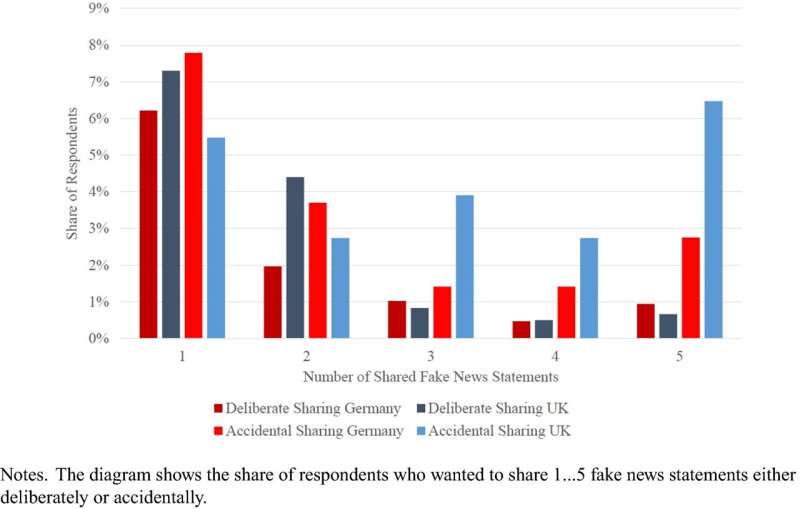May 16, 2023 report
Surveys in UK and Germany suggest conservatives more likely to share fake news but usually without deception

Bob Yirka
news contributor

A trio of economists and social scientists from Zayed University, Utrecht University and TU Dresden has found via survey analysis that conservative people are more likely to share fake news but most believe such stories to be true. In their study, reported in the journal Scientific Reports, K. Peren Arin, Deni Mazrekaj and Marcel Thum conducted large-scale surveys in the U.K. and Germany regarding fake news.
With the advent of the internet, sharing of information by non-news organizations has proliferated to the extent that individuals can now reach an audience of millions. And unfortunately, not all such information is true. People can post fabricated stories or pass on information they have learned from others without verifying its accuracy. This has given rise to an age of fake news.
This new class of news, it has been noted, can be classified into two major categories: disinformation, which is intentionally deceptive, or misinformation, in which the sharer believes the false news to be true. In this new effort, the researchers wondered if people who spread fake news do so with the intent to deceive or if they pass on news because they believe it to be true.
To find out, they carried out a large-scale survey effort in both the U.K. and Germany asking respondents about their ability to detect fake news, their political leanings, and their motivations for sharing news. In all, 2,400 surveys were returned and studied.
The researchers verified previous findings—fake news is more often shared by people with conservative backgrounds. But they also found that most of them are not trying to convince others of things they know are false—most believe the fake news they are spreading is true.
The research team also found that older people were more likely to spot fake news than younger people, as were those with higher incomes and those who were more highly educated. They also found that younger people were more likely to spread disinformation. The researchers suggest that the root cause of sharing of fake news is a lack of education and critical thinking skills.
Written for you by our author —this article is the result of careful human work. We rely on readers like you to keep independent science journalism alive. If this reporting matters to you, please consider a (especially monthly). You'll get an ad-free account as a thank-you.
More information: K. Peren Arin et al, Ability of detecting and willingness to share fake news, Scientific Reports (2023).
Journal information: Scientific Reports
© 2023 Science X Network





















